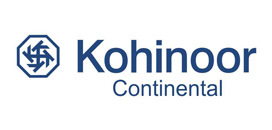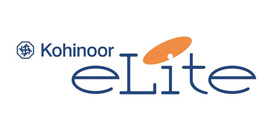Ethiopian Airlines remains the largest and fastest growing Airline in Africa and certainly one the most profitable worldwide. Having experienced the airline right from Mumbai to Addis to Germany and right up to Brazil and Argentina, I have but to admire the hospitality that the airline provides apart from the inflight comfort. Having established in 1946 it has been serving the world for the last more than seventy-five years and in India over fifty years. It remains the best airline connecting Indians with Africa and the rest of the world.
So it was such a pleasure catching up with Bilen Arefaine the new Regional Director of the Indian Sub-Continent. In a tête-à-tête with Chandragupta Amritkar she highlighted on the airlines presence in India and its plans. Excerpts

What is the current presence of Ethiopian Airlines in India - passenger as well as cargo?
Ethiopian Airlines has a long history with India. We commenced our first flight to the country with a service to New Delhi just 20 years after Ethiopian Airlines was founded. We have been serving India for more than 50 years now. Currently we serve four destinations in the country. We have flights to/from Bangalore, Chennai, Mumbai and New Delhi. All our destinations in India enjoy both passenger and cargo service in a belly hold capacity with a dedicated cargo service to/from Mumbai.
How did your airline handle pandemic?
During the pandemic, Ethiopian Airlines has proved to be one of the strongest airlines in the world because we never stopped operations. Our management was quick to understand the need for quick transfer of cargo, especially medicines and we decided to convert passenger planes into cargo. Probably we were the first airport to have inbuilt temperature scanners.
With COVID-19 drifting away, how is the passenger service taking off?
One of the devastating impacts of the pandemic on the airline business has been the drastic decrease in demand for passenger transportation services. However, the demand started to witness a recovery especially after the discovery of vaccines and boarder openings. With the reviving of passenger flights, we are returning the aircraft converted to cargo amidst the high demand for cargo shipment back to passenger services.
What is the status of your Code Share Agreement with Air India which I believe was suspended just before COVID?
Ethiopian Airlines and Air India, both a member of Star Alliance are in a codeshare agreement that enables both carriers provide a seamless and unparalleled connectivity to their passengers traveling between India and Africa. The agreement had been suspended for the purpose of system migration however, it has already been reinstated.
Can you enlighten my readers on your Skylight In-Terminal Hotel and how they can benefit?
That’s one of our highlights. Transit at Addis Ababa is a delight with our Skylight In-Terminal Hotel. Located inside Addis Ababa Bole International Airport, a short walking distance from departure gates it has become very popular among passengers especially Diplomats. Passengers who have a transit at Addis Ababa can book their stay to freshen up and relax in spacious rooms before proceeding to their next flight. We also have a restaurant, a gym and a small meeting area. The hotel provides an ultimate convenience to transit passengers who do not wish to leave the airport for different reasons. The hotel is available for stays from minimum four hours up to 24 hours.
How do you view the Indian market and any specific plans?
India is a significant market in Asia for us. We have a deep operational connection with the country and provide a smooth connectivity to most cities in India through a code share agreement. We plan to strengthen our presence in the country, transporting both passengers and cargo. I believe we will succeed in a big way as for Indians we have the best connection and the best frequencies in Africa and from there across the world.
What are the highlights/ targets of Vision 2035?
We met the goals it set in our 15 years strategic vision, Vision 2025 early. Now we are working on a new 15-year strategic plan called Vision 2035 that will focus on the five pillars (Infrastructure, HRM, system and sustainability, fleet and ICT). This strategic road map will see Ethiopian to an even greater success and achieve new milestones.















